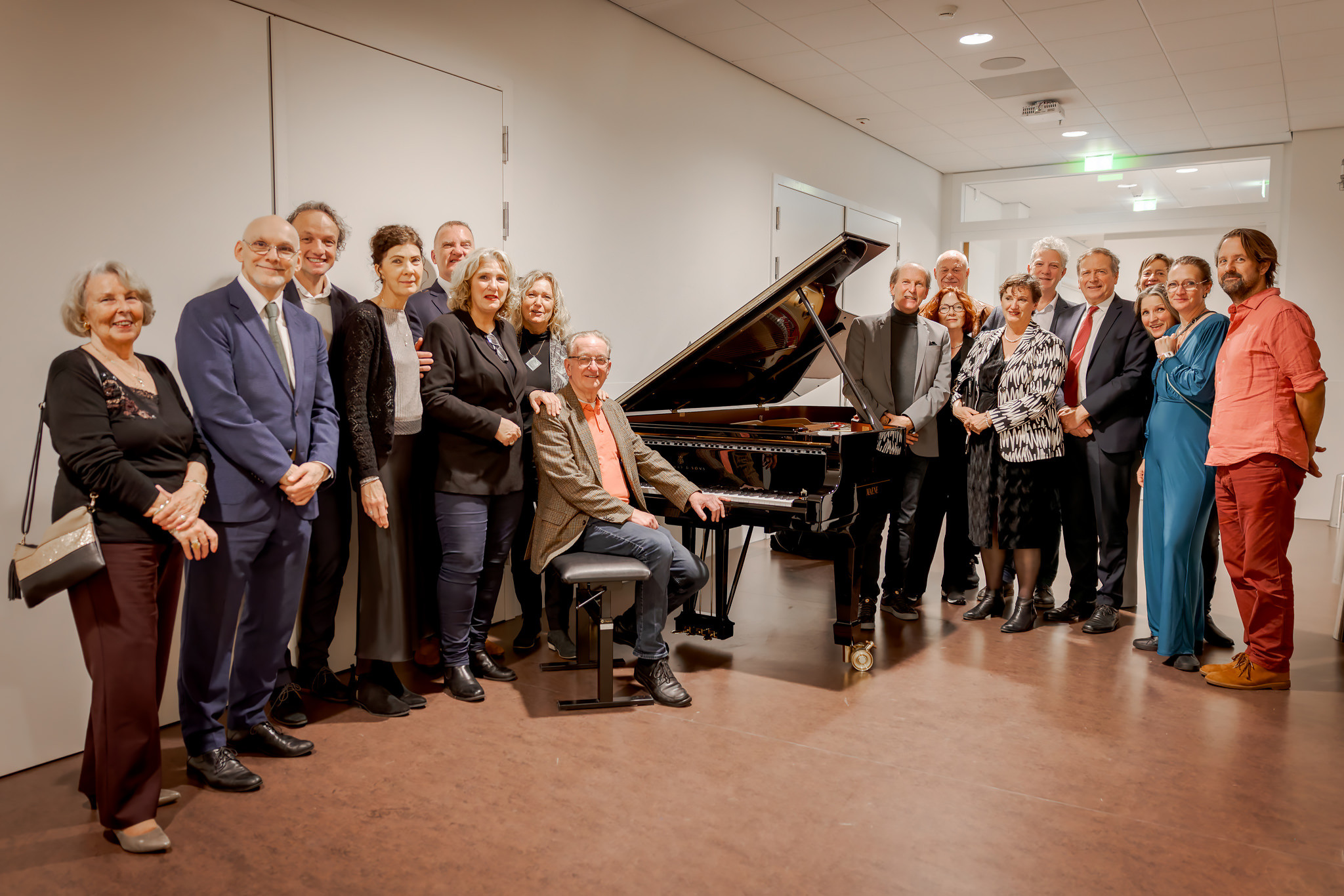Testamentary donor Paul Op ten Berg
'The Residentie Orkest is part of my family history'
Paul Op ten Berg and his family have been intertwined with classical music and the Residentie Orkest for generations. That deep-rooted connection made the choice to include the orchestra in his will natural and natural: "I can't think of a better cause.
Beethoven at the kitchen table
Paul Op ten Berg's childhood memories are inseparable from music. His father played trumpet with the Residentie Orkest for 47 years, his grandfather was a trombonist with the Rotterdam Philharmonic, and his sister studied choral conducting at The Hague Conservatory. Paul often went to concerts with his mother, and at home most conversations were about music. 'Then my father would sing jokes he used with colleagues during rehearsals,' he recalls. 'On the beat of the Scherzo from Beethoven's Seventh , he sang "Jan van der Brink, Jan van der Brink, jumping from the chair onto the table." I'll never forget that.
'Stop that whistling'
Although Paul grew up in a musical family, he took a different direction himself. 'I've always had trouble reading notes. That's in the same corner for me as math and chemistry: it just doesn't suit me.' He chose the hospitality industry: he went to higher hotel school, worked in starred restaurants in France and Germany and then built a career as a sommelier. In 1986, he co-founded the Dutch Guild of Sommeliers, of which he is still an honorary member.
Classical music was never far away in his work, either. 'I was always whistling in the kitchen. Until at one point my colleagues said, "Now stop that whistling!"' Later he organized wine tastings for musicians of the Residentie Orkest. 'My two worlds came together very nicely in those.' In his tasting notes, he sometimes makes comparisons with music: 'This wine goes better with Mozart than with Brahms, for example.' And when he tastes wine at home with family or acquaintances, one of his three thousand classical LPs is always on.
"I can't think of a better cause."
- Paul Op ten Berg
'The next grand piano is mine'
The music that has surrounded Paul all his life has provided lasting memories. 'Verdi's Requiem with Gré Brouwenstijn in the Kurhaus ... I can still hear that.' And recently he attended a performance of Mahler's Fourth Symphony at Amare: 'I really enjoyed that very much.' Other impressions are quieter. 'Counting has always stayed with me. My father counted rest measures during rehearsals. Then when he walked home in the evening to save streetcar fare, he kept counting. Every step, all the way home.' Paul adopted that habit. 'Now when I walk to the physical therapist, I always count my steps.'
Another memory that has stayed with him is the anniversary concert of the Residentie Orkest that Paul attended with family. During that concert, a new Steinway concert grand piano was presented, made possible in part by a contribution from his sister. In front of a hall of two thousand audience members, director Sven Arne Tepl mentioned the importance of her support, also mentioning their father, the well-known trumpet player. For Paul, that gave the moment an extra charge: "Then I said: the next grand piano is mine!
simonvanboxtel-3120.jpg/cc0ebf95420a14f4212cdb703b9eff71.jpg)
From family relationship to legacy
And so it happened. Brother and sister both decided to include the Residentie Orkest in their wills. 'We discussed that at my house. It took us a couple of years to do that.' Because of the strong family connection with the orchestra, and because there are no children to bequeath to it, the choice was obvious: "I think it's a great charity. Paul's sister died a few years ago and divided her estate among three institutions, including the Residentie Orkest. Paul named the orchestra as his sole heir.
His estate is specifically earmarked for musical instruments: a concrete and necessary goal that he believes directly benefits the quality of the orchestra. Musical instruments have a limited lifespan: 'A concert grand piano lasts ten years, I heard. Then it's time for a new one again.' Paul hopes that his contribution will enable the Residentie Orkest to continue playing at the highest level - with instruments that make that quality possible.

Lasting value
In addition to his personal connection to the orchestra, Paul sees music as something society desperately needs. 'It is more than relaxation or luxury; music is socially necessary.' He worries about how art and culture in the Netherlands are coming under increasing pressure, with 'the political winds' currently blowing as the main cause. In addition to practical support for the orchestra, Paul therefore sees his legacy as a kind of headwind.
He hopes more people will consider including cultural institutions in their wills. At a time when art and culture increasingly have to fight for their right to exist, he sees private support as indispensable. In addition, he strongly believes in the positive influence of music on society. So his choice is rooted not only in family history, but also in the strong conviction that music is of lasting value for future generations: 'I can think of no better cause.'